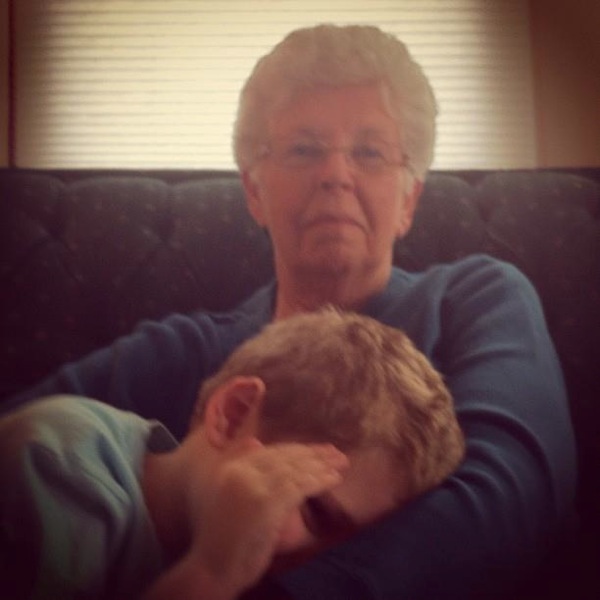In November of 2006, my wife and I (along with some brilliant therapists) taught our barely 2-year-old son to make eye contact.
During their formative years, persons with autism don’t pick up the typical social cues you and I take for granted.
And so, the therapists taught us to teach Will how to make eye contact – a skill many persons on the spectrum struggle with their whole lives.
That was a big moment. Like you, I’m sure, we’ve had lots of big moments. I always tell people:
“Please don’t feel sorry for us. We don’t feel sorry for ourselves. We celebrate stuff, too. Just like other families. We just celebrate different stuff.”
Like that day – when he was almost four – when we first heard him say a full sentence.
Or that day he sang the “I like pizza” song.
Or that day he played baseball in Challenger league for the first time.
Or that night he said “I love you.”
Heck, maybe we’re not that different after all. Sure, my son may have said it a few years later than – here’s that word again – typical children, but so what?
I will tell you this:
Teaching your son to make eye contact makes it awfully difficult to give a damn about Khloe and Snookie and Paris and who said what to whom and which advertising agency won the latest Addy or Clio award.
I think it’s time we all take a long look at who we put on our pedestals and for what reasons.
We need to question – vehemently question – what we celebrate in this country – whether fame for fame’s sake or how well someone hits a golf ball at the expense of everything else.
Before Will was diagnosed, I’d won more than 80 awards for my work. I loved those awards shows and, like many others in the field, felt they somehow validated my, umm, genius.
Sheesh.
You know what else? Many times those awards represented really funny, really clever ideas and concepts.
You know what else?
I began to notice a gap between clever, funny, creative advertising and clear, effective, persuasive advertising.
I had a great awakening during that time – where I realized that most of the award winning ads weren’t working nearly as well as some of the other campaigns.
And it bothered my that there were a few advertising professionals who didn’t seem to care.
They wanted the hardware. I wanted the money it took to pay for my son’s therapy, and since my income was now directly tied to my clients growth, I very quickly threw all the awards in storage and worked my tail off on stuff that got results.
I also started to get very picky about clients. We began to be very careful about aligning the building blocks necessary for success.
We suspected our son’s development depended on it.
We were right. It has.
And that’s the only award that matters now.


Awesome article, Tim.
As a father of 3 children on the spectrum (and one who’s too young to know for sure), as well as a marketer, I relate to this message on some deep levels.
Every family is one-of-a-kind, even in the things we celebrate. We have unique challenges and unique victories. Celebrate what’s important to YOU.
Oh, and I’m a big fan of “clear, effective, persuasive advertising.” I reckon it takes more creativity to meet all those criteria than it does to be “clever.”
Great stuff!
Tim, Fabulous post!! And that is some rockin’ eye contact:)
So… I’ll admit it. I’ve struggled all my life with eye contact. What can I learn from Will and his teachers, a/k/a his parents?
What I have learned at 60-something is that when I do make eye contact, often my vision is clouded by my point of view, focus and preconceptions. The good teacher said something about getting the log out of my own eye. Thanks for bringing me back to the beginning.